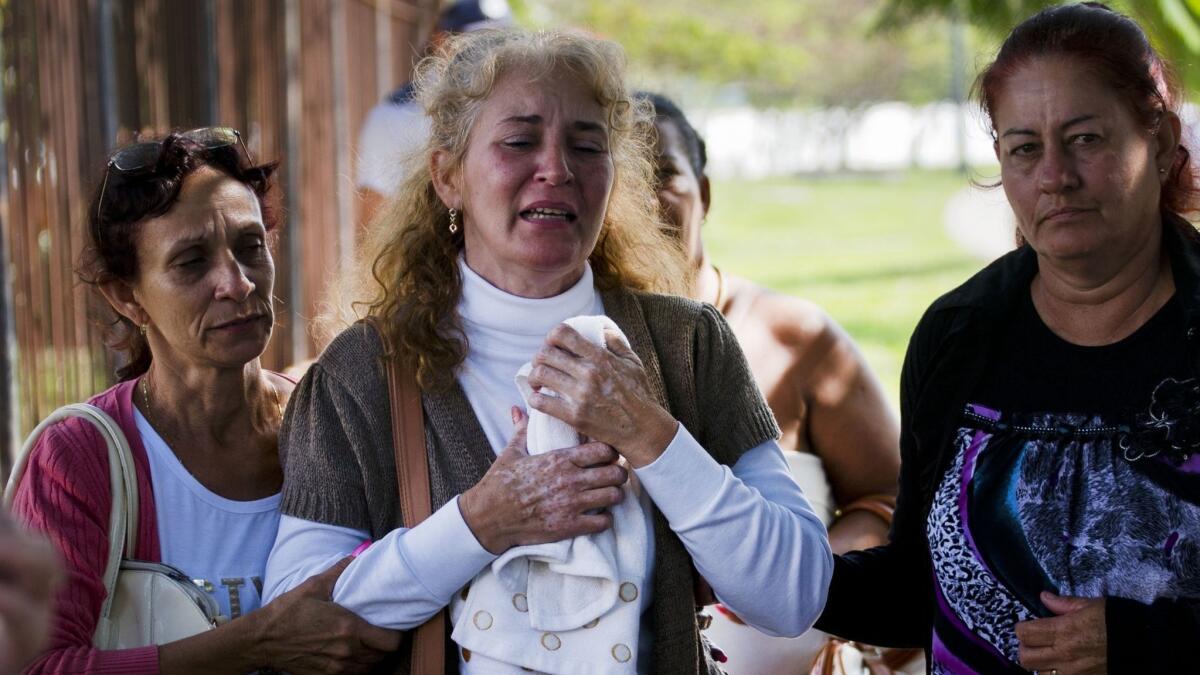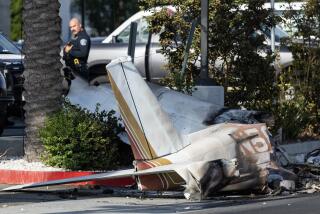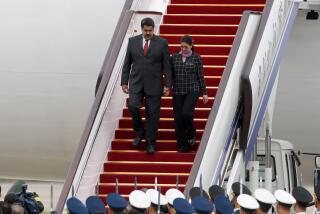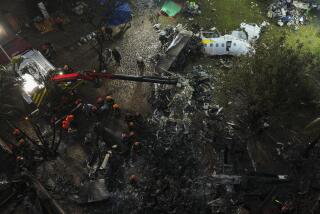Officials say company in Cuba airliner crash had safety complaints

The Mexican charter company whose plane crashed in Havana, killing 110 people, has been the subject of two serious complaints about its crews’ performance over the last decade, according to authorities in Guyana and a retired pilot for Cuba’s national airline.
The plane was barred from Guyanese airspace last year after authorities discovered that its crew had been allowing dangerous overloading of luggage on flights to Cuba, Lt. Col. Egbert Field, Guyana’s civil aviation director, told the Associated Press on Saturday.
The plane and crew were being rented from Mexico City-based Damojh airlines by EasySky, a Honduras-based low-cost airline. Cuba’s national carrier, Cubana de Aviacion, was also renting the Boeing 737 and crew in a similar arrangement known as a “wet lease” before the aircraft veered on takeoff to the eastern Cuban city of Holguin and crashed into a field just after noon Friday, according to Mexican aviation authorities.
A Damojh employee in Mexico City declined to comment, saying the company would be communicating only through written statements. Mexican authorities said Damojh had permits needed to lease its aircraft and had passed a November 2017 verification of its maintenance program.
Cuban Transportation Minister Adel Yzquierdo Rodriguez told reporters Saturday afternoon that Cubana had been renting the plane for less than a month under an arrangement in which the Mexican company was entirely responsible for maintenance of the aircraft. Armando Daniel Lopez, president of Cuba’s Institute of Civil Aviation, told the AP that Cuban authorities had not received any complaints about the plane in that month. He declined to comment further.
Yzquierdo said it was routine for Cuba to rent planes under a variety of arrangements because of what he described as the country’s inability to purchase its own aircraft due to the U.S. trade embargo on the island. Cuba has been able to buy planes produced in other countries, including France and Ukraine, but has pulled many from service due to maintenance problems and other issues.
Yzquierdo also said the jet’s “black box” voice recorder had been recovered and that Cuban officials had granted a U.S. request for investigators from Boeing to travel to the island.
Ovidio Martinez Lopez, a pilot for Cubana for over 40 years until he retired six years ago, wrote in a post on Facebook that a plane rented from the Mexican company by Cubana briefly dropped off radar while over the city of Santa Clara in 2010 or 2011, triggering an immediate response by Cuban aviation security officials. As a result, Cuban officials suspended a captain and co-pilot for “serious technical knowledge issues,” and Cuba’s aviation security authority issued a formal recommendation that Cubana stop renting planes and crews from Damojh, Martinez wrote.
“They are many flight attendants and security personnel who refused to fly with this airline,” Martinez wrote. “On this occasion, the recommendation was overlooked and they rented from them again.”
Contacted by AP in Havana, Martinez confirmed his Facebook account but declined to comment further.
More to Read
Sign up for Essential California
The most important California stories and recommendations in your inbox every morning.
You may occasionally receive promotional content from the Los Angeles Times.










